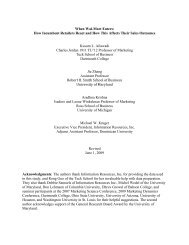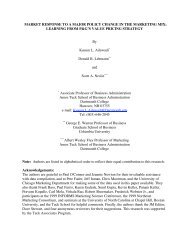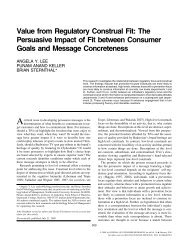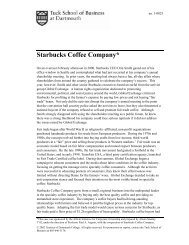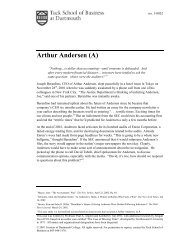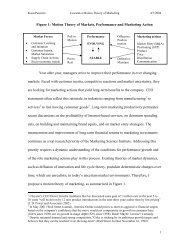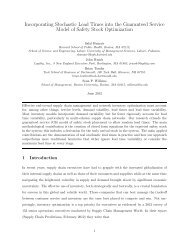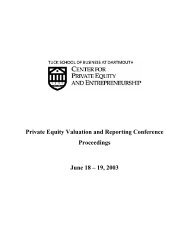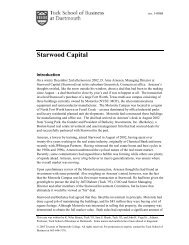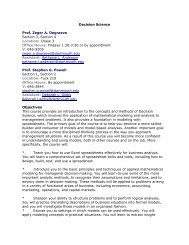deal structure note - Tuck School of Business - Dartmouth College
deal structure note - Tuck School of Business - Dartmouth College
deal structure note - Tuck School of Business - Dartmouth College
You also want an ePaper? Increase the reach of your titles
YUMPU automatically turns print PDFs into web optimized ePapers that Google loves.
6<br />
Deal Structures Note<br />
Founders Common 6,000,000 $50,000<br />
A Participating preferred 4,000,000 $2,000,000<br />
If the company were sold for $4 million, then the Series A investor would receive all <strong>of</strong><br />
the proceeds from the sale because the 3x liquidation preference entitles him to the first<br />
$6 million (3 * $2,000,000 investment) generated by any sale or liquidation. The<br />
founders would get nothing.<br />
If the company were sold for $10 million, the Series A investor would once again choose<br />
the multiple over conversion, since he would receive $6 million as opposed to $4 million<br />
for his 40% share <strong>of</strong> the common stock. The founders would receive the remaining $4<br />
million.<br />
Series A would be indifferent between the two options at a sale price <strong>of</strong> $15 million,<br />
above which he would choose to convert and receive his 40% share.<br />
Redeemable preferred stock can be redeemed for face value at the choice <strong>of</strong> the<br />
investor. Sometimes called straight preferred, it cannot be converted into common stock.<br />
Usually, the terms <strong>of</strong> the issue specify when the stock must be redeemed, such as after an<br />
IPO or a specific time period. Redeemable preferred gives the investor an exit vehicle<br />
should an IPO or sale <strong>of</strong> the company not materialize.<br />
Convertible debt is a loan vehicle that allows the lender to exchange the debt for<br />
common shares in a company at a preset conversion ratio.<br />
Mezzanine debt is a layer <strong>of</strong> financing that has lower priority than senior debt but<br />
usually has a higher interest rate and <strong>of</strong>ten includes warrants.<br />
Senior debt is a loan that enjoys higher priority than other loans or equity stock in case<br />
<strong>of</strong> a liquidation <strong>of</strong> the asset or company.<br />
Subordinated debt is a loan that has a lower priority than a senior loan in case <strong>of</strong> a<br />
liquidation <strong>of</strong> the asset or company.<br />
Warrants are derivative securities that give the holder the right to purchase shares in a<br />
company at a pre-determined price. Typically, warrants are issued concurrently with<br />
preferred stock or bonds in order to increase the appeal <strong>of</strong> the stock or bonds to potential<br />
investors. They may also be used to compensate early investors for increased risk.<br />
Options are rights to purchase or sell shares <strong>of</strong> stock at a specific price within a specific<br />
period <strong>of</strong> time. Stock purchase options are commonly used as long-term incentive<br />
compensation for employees and management.<br />
ANTI-DILUTION



